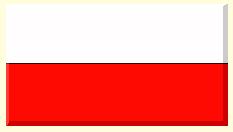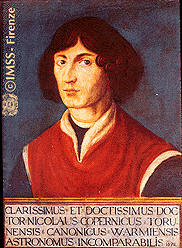

|
|
![]()
Adam Michnik (1946 - ) writer and dissent. During the communist period, Adam Michnik was part of the underground intelligentsia in Poland. He was one of the founder of the Workers' Defense Committee, a group uniting the intelligentsia with workers in a common struggle against the oppression of the communist regime. This Committee would later go on to become the Solidarity social movement which eventually brought down the communist regime in the late 1980s. Michnik went on to serve as a member of Parliament in democratic Poland, and now is the editor of the popular daily newspaper Gazeta Wyborcza.
![]()
Lech Wałęsa (1943 - ) worker, dissent. As a young man, Lech Wałęsa worked as an electrician in the shipyards of the Baltic coast city of Gdańsk. He would become one of the founding member of Solidarity, which began as a workers' trade union and eventually grew to a Poland-wide social movement with membership estimated at over 10 million. After the fall of communism, Wałęsa would go on to become president of the new democratic republic.
![]()
Born: 19 Feb 1473 in Torun, Poland Died: 24 May 1543 in Frombork, Poland |
 |
The five-hundredth anniversary of Copernicus's birth was celebrated throughout the world in 1973. Various governments issued commemorative stamps in his honor; the last of the two orbiting astronomical observatories, launched by NASA in 1972, was named OAO-Copernicus, and historians of science met to eulogize the accomplishments of the man who revolutionized astronomy with his heliocentric system.
After the death of his father when Copernicus was 10 years old, an uncle, a churchman who later became a bishop, raised him and saw to it that he had an excellent education. Copernicus studied mathematics, philosophy, astronomy, and astrology at the University of Cracow, and he studied law and medicine at the Universities of Bologna and Padua. When he returned to Poland, he lived for a while in his uncle's castle. There he spent time as a physician, engaged in diplomatic activities, and undertook various administrative duties. After he was elected a canon through his uncle's influence, he had sufficient income to devote more of his time to astronomy, his first love.
Beginning in 1512, Copernicus set himself the task of examining critically the various systems of the world that had been proposed in the past. Becoming dissatisfied with the complexity and improbability he found in the Ptolemaic system, he revived Aristarchus's heliocentric concept sometime before 1514. Placing the Sun at the center of the Solar System simplified matters, as wrote Copernicus: "In the center of everything the Sun must reside;...there is the place which awaits him where he can give light to all the planets." In his development of the heliocentric system, Copernicus also retained the notion of uniform circular motion. He was thereby compelled to introduce a number of epicycles and eccentrics in order to account for the variable movements of the planets.
Sometime before 1514 Copernicus circulated a summary of his ideas among his friends. Knowledge of it spread to others. However, the full fruits of his labor, On the Revolutions of the Heavenly Orbs, did not appear until 1543, nearly three decades later. To a cardinal friend who had inquired about his theory Copernicus wrote: "Although I know the thoughts of a philosopher do not depend on the judgment of the many, yet when I considered how absurd my doctrine would appear, I long hesitated whether I should publish my book."
![]()
Adam Mickiewicz (1798 - 1855) Poland's most famous poet. Wrote many poems, including : Pan Tadeusz, Dziady, which have been translated into many other languages. He was a professor at Collége De France from 1841 - 1844, editor of Tribune des Peuples in 1849.
![]()
Born: Zelazowa Wola (Poland), 3/01/1810 Died: Paris (France), 10/17/1849. Chopin died of tuberculosis, at age 39. http://www.chopin.pl (In Polish only) |

|
![]()
Henryk Sienkiewicz (1846 - 1916) a world famous writer. Some of his works include: Quo Vadis, a story set in the times of the Roman emperor Nero, which won him a Nobel Prize, and became the #1 Worldwide Best-selling Novel of All Time; Krzyzacy; W Pustyni I w Puszczy; The Trilogy of Potop, Pan Wolodyjowski, Ogniem I Mieczem; all of which have been translated into many other languages.
![]()
Józef Korzeniowski (Joseph Conrad) (1857 -1924) Few people realize that this popular English author of seafaring novels such as Lord Jim, was actually Józef Korzeniowski, born of Polish parents in the Ukraine.
![]()
Wladyslaw Reymont (1867 - 1925) also a writer. He won a Nobel Prize for his epic novel Chlopi, strong with local color and historical detail.
![]()
Czeslaw Milosz (1911 - 2004) writer. Won the Nobel Prize in 1980 and subsequently returning home after 30 years in exile. Born half Polish, half Lithuanian, was educated in France but spent the war years in Poland, active in Warsaw's underground resistance movement. Hopeful of change, he joined the Polish diplomatic service. Then disillusioned with the Communist regime, he went to teach Polish literature at the University of California.
![]()